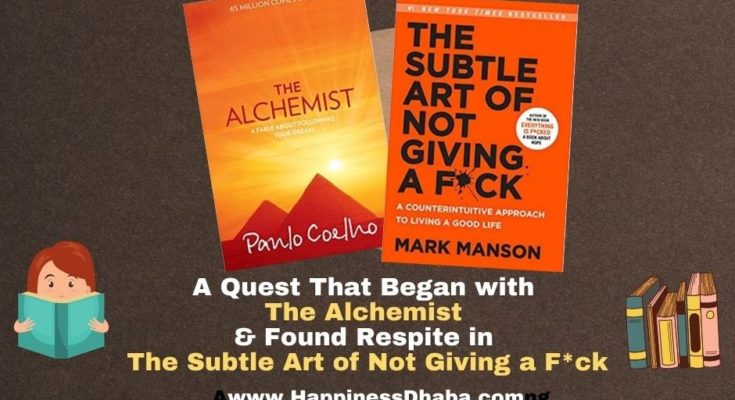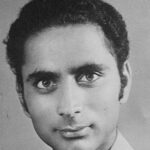The crystal merchant’s character in the book The Alchemist by Paulo Coelho is one of the most evocative fictional characters I have ever read. The merchant kept longing for a pilgrimage to Mecca his entire life, but when he finally became capable of transmuting his dream into a reality, he backed off.
He backed off because his mind was conquered by the preconception that he will have nothing left to go on living once his dream is realized.
Table of Contents
The Startling Conservation (for your reference):
Santiago ― Well, why don’t you go to Mecca now?
The Merchant ― Because it’s the thought of Mecca that keeps me alive. That’s what helps me face these days that are all the same, these mute crystals on the shelves, and lunch and dinner at that same horrible cafe. I’m afraid that if my dream is realized, I’ll have no reason to go on living.
Merchant’s Perspective:
It’s evident that there are some serious flaws in the Merchant’s line of reasoning. And, this flaw is something that drove me to search for a levelheaded answer.
For the merchant, who had invested thirty years of his life in the hope of fulfilling his dream, this “hope of fulfilling his dream” had become an integral part of his life. It had transpired into a source of energy that incessantly fueled him to happily withstand his otherwise monotonous life.
So, even a transient thought of realization of his “eternally overdue dream” threatened to rob him of his hope, his propellant, something that has become a part of his existence.
Hence, for the merchant, more than the joy of achieving something, the thought of realization of his dream carried with it a sense of indecipherable loss.
Quest That began 8 Years Ago:
I read these words about 8 years ago during my 1st year in college. They forced me into a state of deep cerebration. I started questioning my own path. When I would materialize my dream of becoming an engineer, get a money-spinning job, reach a position where I could fulfill my every “reasonable” desire,
What would be my reason for living after that?
This was something I couldn’t discuss with anyone in college because the intelligent and the visionary ones were preoccupied with the demanding endeavor of successfully shaping their career and so, there was hardly anyone qualified accessible to me to render an intelligent opinion on the subject.
And why not?
Why would a bunch of young and intelligent undergrads distress over what would they do after their dream is realized, when their dream itself is too demanding to let them feast their eyes on the aftermath of its realization.
For some, their intense desire to get their dreams realized acted as a potential shield for their thoughts while for others hedonism came to the rescue.
But for me, I hardly had any clear direction for the future. My only ambition was to get a job and then think about what to do next. Just like the crystal merchant, my metric for success was very limiting in nature. This shallow metric in amalgamation with my hard-core introvert nature at that time ensured that I had enough time even in a noisy hostel to read books and reflect on them.
3 years passed and I entered the final year of college. By this time, I had a few freelancing projects at hand which in unification with my intense reading habit and a serious health catastrophe started laying the foundation for setting me free from my humble dream of getting a good job. As the newly acquired financial freedom began to seep in, my thoughts began to change.
The Entry of Charles Bukowski:
Also, this was the time when I was deep into reading Charles Bukowski. His unsparingly realistic and graphic take on society, fellow humans, work culture, and everything that seemed to follow a predefined rule strongly resonated with me.
The following words from Bukowski are enough to force any individual to rethink their core values:
How in the hell could a man enjoy being awakened at 8:30 a.m. by an alarm clock, leap out of bed, dress, force-feed, shit, piss, brush teeth and hair, and fight traffic to get to a place where essentially you made lots of money for somebody else and were asked to be grateful for the opportunity to do so?
Such words gave fodder for my “empty” evenings and idle mind. Thus, further giving impetus to my quest of what after the dream is realized.
Also Read: Slay the 21st Century with These 15 Powerful Life Lessons from Charles Bukowski
Realization of my “Dream”:
Finally, my humble dream of getting a good job through college placements came to fruition but there was hardly any breakthrough in my quest. The Alchemist had given me fodder for my free time but still with my little worldly experience, for me, it was a hard nut to crack.
Like crystal Merchant, I too backed off:
As the crystal merchant didn’t go ahead with fulfilling his dream of going to Mecca, so did I. I didn’t become a party to any of those organizations for which I had dreamt of my entire “student life.” In my case, it was not the fear of realization of the dream that the merchant in The Alchemist grappled with.
My habit of reading a lot of books amalgamated with my newly acquired financial freedom(through freelancing) and a serious health catastrophe had evolved my metric of success. I no longer wanted to get into the 9 to 5 world. Even if I did someday, I had this unplumbed clarity that it wouldn’t form the predominant part of my story.
Fast forward, from 2017 to 2019, I got a few more refreshing freelancing projects, started this blog, acquired a few utilitarian skills, and tried my hands on a lot of unfamiliar things. But still, that thought from The Alchemist never beat a retreat.
The Entry of Morrie:
This was the time when I read Tuesdays with Morrie from Mitch Albom.
The following words from Morrie marked the watershed moment for my quest :
We’re so wrapped up with egotistical things, career, family, having enough money. We’re involved in trillions of little acts just to keep going.
So we don’t get into the habit of standing back and looking at our lives and saying:
Is that all? Is that all I want? Is something missing?
Is this all?
Is this all I want?
Is something missing?
These words continually force me to rethink my current values. This was undeniably an essential breakthrough in my quest.
But still, what after the dream is realized remained unanswered.
Finally, The Answer:
Finally, one day while rereading the book, The Subtle Art of Not Giving a F*ck by Mark Manson, my eyes got stuck on a passage I had highlighted about 2 years ago.
Here’s the excerpt for you,
If your metric for the value “success by worldly standards” is “Buy a house and a nice car,” and you spend twenty years working your ass off to achieve it, once it’s achieved the metric has nothing left to give you. Then say hello to your midlife crisis, because the problem that drove you your entire adult life was just taken away from you. There are no other opportunities to keep growing and improving, and yet it’s growth that generates happiness, not a long list of arbitrary achievements.
These words from Manson to a large extent solved my quest of what would be the driving force of my life after my dream is realized.
The Flaw with the Merchant’s Dream:―
Manson’s words put forth the idea that the dream should be such that there is always room for growth and improvement because it’s growth that generates happiness, not a long list of arbitrary achievements. This was the flaw with the merchant’s dream. He had reputed his dream as the final destination.
While in reality, in our life, there is no such thing as a final destination. There is no stopping point.
These words from Manson further corroborated my existing belief that graduating from college, getting a job, buying a car, owning a house and other such desires are good to have but only when they are produced as an effect of some larger goal of yours.
If you are beginning your career with these desires as your goal then sooner or later your shallow metric wIll have nothing left to offer you.
TakeAways:
- Shift your Focus from the Result to the Process: This gives us freedom from our futile concern about the result. And, that’s really important because the final result we desire is itself not a fixed entity. It keeps evolving to match the locus of our position on the knowledge spectrum.
- Money cannot be the ultimate goal: Money is important but money cannot be the ultimate goal. After a certain stage, it should come as a by-product of your intellectual satisfaction.
It’s said that Words, sometimes, can set you free. The above words from Manson are a perfect testament to that claim. They really can give the readers freedom from many of their trivial distractions. They basically give clarity in a world overwhelmed with options.
So, my quest that began with The Alchemist has finally found some respite in The Subtle Art of Not Giving a F*ck.
Amazon Links to Buy the Books mentioned above:
- The Alchemist by Paulo Coelho | Amazon.in | Amazon.com
- Tuesdays with Morrie by Mitch Albom| Amazon.in | Amazon.com
- The Subtle Art of Not Giving a F*ck by Mark Manson | Amazon.in | Amazon.com
- Factotum by Charles Bukowski | Amazon.in | Amazon.com
The Best Books:
Recommended Reading Lists
1. Best Books To Help You Develop the HABIT of READING
2. Best Books That Teach the Art of Living a HAPPIER LIFE
3. Best Books on STOCK MARKET & INVESTING
4. Best Books To Help You Find HOPE During Your Darkest of Times
That’s all I have for today. Thanks a lot for tuning in to HappinessDhaba. Do let me know your views in the comment section.
Signing off with my favorite words
Zindagi Zindabad!
Author Profile

Recent Posts
 The Punjabi LiteratureJuly 14, 2025Paash on the Death of Dreams ― Sab Ton Khatarnak
The Punjabi LiteratureJuly 14, 2025Paash on the Death of Dreams ― Sab Ton Khatarnak Blog PostsApril 6, 2025Rebuilding Identity After The Self Falls Apart | by Jasmeet
Blog PostsApril 6, 2025Rebuilding Identity After The Self Falls Apart | by Jasmeet Book Summaries & LessonsFebruary 6, 2025BURN IT ALL: Kafka’s Legacy and the Friendship That Saved It
Book Summaries & LessonsFebruary 6, 2025BURN IT ALL: Kafka’s Legacy and the Friendship That Saved It Life Through SongsJanuary 20, 20259 Best Punjabi Heer Ranjha Songs ― The Modern Playlist
Life Through SongsJanuary 20, 20259 Best Punjabi Heer Ranjha Songs ― The Modern Playlist










2 Comments on “A Quest That Began with The Alchemist & Found Respite in The Subtle Art of Not Giving a F*ck | HappinessDhaba”